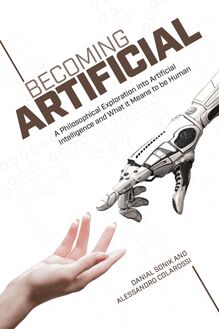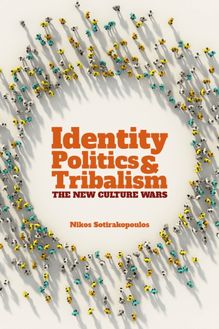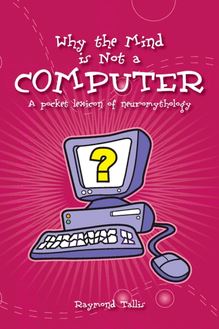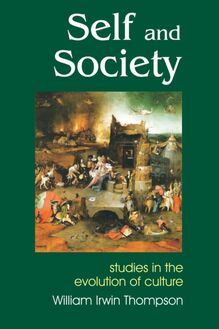-
 Univers
Univers
-
 Ebooks
Ebooks
-
 Livres audio
Livres audio
-
 Presse
Presse
-
 Podcasts
Podcasts
-
 BD
BD
-
 Documents
Documents
-
- Cours
- Révisions
- Ressources pédagogiques
- Sciences de l’éducation
- Manuels scolaires
- Langues
- Travaux de classe
- Annales de BEP
- Etudes supérieures
- Maternelle et primaire
- Fiches de lecture
- Orientation scolaire
- Méthodologie
- Corrigés de devoir
- Annales d’examens et concours
- Annales du bac
- Annales du brevet
- Rapports de stage
La lecture à portée de main
Vous pourrez modifier la taille du texte de cet ouvrage
Découvre YouScribe en t'inscrivant gratuitement
Je m'inscrisDécouvre YouScribe en t'inscrivant gratuitement
Je m'inscrisEn savoir plus
Vous pourrez modifier la taille du texte de cet ouvrage
En savoir plus

Description
Sujets
Informations
| Publié par | Andrews UK |
| Date de parution | 10 janvier 2017 |
| Nombre de lectures | 0 |
| EAN13 | 9781845408589 |
| Langue | English |
Informations légales : prix de location à la page 0,0324€. Cette information est donnée uniquement à titre indicatif conformément à la législation en vigueur.
Extrait
The Balancing Act
National Identity and Sovereignty for Britain in Europe
Atsuko Ichijo
SOCIETAS
essays in political
& cultural criticism
imprint-academic.com
2017 digital version converted and published by
Andrews UK Limited
www.andrewsuk.com
Copyright © Atsuko Ichijo, 2008, 2017
The moral rights of the author have been asserted.
No part of this publication may be reproduced in any form without permission, except for the quotation of brief passages in criticism and discussion.
Imprint Academic, PO Box 200, Exeter EX5 5YX, UK
Preface by Dr John Hutchinson
In their own eyes, the British are a singular people within the European Union. As Dr Ichijo outlines, they are out of step with other members in dichotomising national and European identities. The British glory in a unique history as a self-governing island, separate from the benighted peoples of the European continent, and as a global imperial power that established with the USA a world Anglophone civilisation. It is a sense of the superiority of their parliamentary institutions that frustrates the British in their dealings with their European neighbours. Britain was a late-comer to the European project, converted to its necessity by its precipitate decline as a world power, its loss of empire and its growing consciousness of economic weakness. The British joined reluctantly and largely for instrumental reasons, with little understanding of or sympathy with the goals of political harmonisation embraced by populations fearful of the destructive legacy of nationalism on the European continent. In the eyes of their neighbours, they have wished to enjoy the economic benefits of the union without paying the political price. In this well-crafted and incisive study Dr Ichijo illuminates why the British perceive their relationship to the European Union as so problematic, by demonstrating how their national identity is historically linked to a concept of sovereignty that is at variance with their membership of the Union.
She does so by a careful examination of the historical formation of Britain as a conglomerate state and of key moments in its interrelations with the European powers. She relates this effectively to the governing discourses of politicians, the mass media and of the British people. What comes out is the centrality of the rhetoric of sovereignty to political elites and to the population at large, one that conceives of Britain’s engagement with Europe as a zero-sum game. A second related theme is the power of geographical images - of Britain as an island, in giving sustenance to this idea of the British nation as by nature separate and autonomous. It follows then that the European Union is seen as ‘other’ and that involvement in European decision-making tends to be viewed in terms of threat rather than of possibility. As Dr Ichijo argues, the concept of sovereignty that underlies this is somewhat naive, since nation-states are not autonomous, economically, militarily or politically, in an increasingly interdependent world. Only by pooling sovereignty can states maximise their national interests in the contemporary world, and the European Union is one instrument by which this can be managed. This, she shows, is understood more among British political elites than the general population, for example by the government of Tony Blair who, using the opportunity of European enlargement by inclusion of more market-oriented post-Soviet states, has sought to transform the corporatist consensus.
Although alienation is expressed by the general population at times as fear, a more pervasive reaction is that of indifference, an interesting finding that is somewhat surprising given the vehemence of so many media campaigns. This supports the value of a micro-analysis that does not automatically read off press reaction as indicative of popular attitudes. As she suggest, this indifference might in part be explained as part of a general disengagement from politics. But it is also explicable by the perception that she documents of the arcaneness of the Union, so easily represented as an inaccessible bureaucracy, remote from the people. This, one might also add, is enhanced by the incoherence of the institutions and their justifications. For some (particularly the big nation-states), the Union is primarily intergovernmental in character, designed to maximise the powers of nation-states; for others (particularly the Commission and the European parliament) it has more of a statist character, designed to create a federal union that will rival the USA and will absorb ever greater powers from the nation-states; and for still others (particularly nations without states and the regions) , it is sui-generis, a postmodern entity exemplifying the multiple sovereignties where authority is located appropriate to the problem at hand.
These different European visions impact on the constituent nation-states, particularly a Britain which is being transformed by the devolution of power to the Scots and the Welsh and by its increasing multiethnic, if not multicultural character of its population. Dr Ichijo, because of her earlier work on contemporary Scottish nationalism, is particularly well qualified to identify the English core of Britishness: how the yoking an older English mythology of Anglo-Saxon liberties to what is essentially a modern political community, has given a ‘primordial’ character to British parliamentary institutions. This deep-seated defence of British political institutions, however, is not shared by Scots who view ‘Europe’ in much more positive terms.
As she also shows, the discourse of sovereignty has had real consequences. It has prevented the then Prime Minister, Tony Blair, from committing Britain to the euro, and political elites both on the left and the right have used their relationship with the USA in a balancing act with the EU in order to maximise British autonomy, on the one hand seeking prestige in Europe by presenting themselves as Europe’s lever of influence on the USA, the global hegemon, and on the other, finding influence with the USA as a principled advocate within the EU of the Atlantic alliance. This supports her contention that sovereignty is increasingly exercised by participation in international institutions. The question for many in an unpredictable and fast changing world is whether the European Union, as presently constituted, is well suited to advance national interests or whether with its increased membership, unreformed processes and yet expanding ambitions it has become too unwieldy an instrument. The results of recent referendums on the constitution indicate a growing disillusion with the project and even fear among founding members, France and the Netherlands, of a developing gap between the interests of European elites and popular interests. May Dr Ichijo’s enterprising study inspire others to undertake a sustained study of the relationship between the other European nation-states and the Union, the discourses through which it is portrayed, and the interelationships between political elites, mass media and the general population. She has provided an excellent model of how this should be done.
John Hutchinson
London School of Economics and Political Science
Acknowledgements
I would first of all like to thank all of the interviewees who willingly and amiably co-operated with my interview work, and especially Dr Jessica Jacobson, Dr Roger Humphry and Simon Jacobson for facilitating the interviews. I would also like to thank Dr Gordana Uzelac (London Metropolitan University) for carrying out the statistical analysis for Chapter Five. The original report on the survey data was written jointly by Dr Uzelac and myself, but the chapter in this book has been extensively re-written by me with a view to addressing the issue of sovereignty. I would also like to thank Dr John Hutchinson who has not only been a source of encouragement but has also kindly contributed the preface for this book. I have received further support and encouragement from a number of people, including Professors Bo Strath (European University Institute) and Anna Triandafillydou (Democritus University of Thrace), and I would like to express my gratitude to them. Steve Mock has done a great job getting my clumsy English into shape. And, last but not least, my husband, Dr Hayo Krombach, deserves mention for his tireless campaign to lift my often sagging mood.
The book is based on the research reports written by myself for the EURONAT project funded by the European Commission Research DG (contract no. HPSE-CT2001-00044). An earlier version of Chapters One and Two has appeared as ‘A balancing act: British state and nation formation and “Europe”’, in Atsuko Ichijo and Willfried Spohn (eds) (2005) Entangled Identities: Nations and Europe , Aldershot: Ashgage, pp. 19–36.
Needless to say, all errors are mine.
Atsuko Ichijo
London, July 2007
Introduction
Britain’s relationship with Europe has been a perennial question in Britain in the early twenty-first century. The vast number of publications on this topic reflects the importance, or at least recognition of the importance, of this question in the United Kingdom today. Perhaps one of the best known polemics of recent times is Hugo Young’s This Blessed Plot: Britain and Europe from Churchill to Blair, published in 1998. The problems of Britain’s relationship with Europe has continued to excite both politicians and academics into the twenty-first century, and policy proposals by the Fabian Society, the Institute of Economic Affairs, the Institute for Study of Civil Society and so on, as well as academic studies of the historical dimension (Keith Robbins) and foreign policy dimensions (Mark Aspinwall), just to name but a
-
 Univers
Univers
-
 Ebooks
Ebooks
-
 Livres audio
Livres audio
-
 Presse
Presse
-
 Podcasts
Podcasts
-
 BD
BD
-
 Documents
Documents
-
Jeunesse
-
Littérature
-
Ressources professionnelles
-
Santé et bien-être
-
Savoirs
-
Education
-
Loisirs et hobbies
-
Art, musique et cinéma
-
Actualité et débat de société
-
Jeunesse
-
Littérature
-
Ressources professionnelles
-
Santé et bien-être
-
Savoirs
-
Education
-
Loisirs et hobbies
-
Art, musique et cinéma
-
Actualité et débat de société
-
Actualités
-
Lifestyle
-
Presse jeunesse
-
Presse professionnelle
-
Pratique
-
Presse sportive
-
Presse internationale
-
Culture & Médias
-
Action et Aventures
-
Science-fiction et Fantasy
-
Société
-
Jeunesse
-
Littérature
-
Ressources professionnelles
-
Santé et bien-être
-
Savoirs
-
Education
-
Loisirs et hobbies
-
Art, musique et cinéma
-
Actualité et débat de société
- Cours
- Révisions
- Ressources pédagogiques
- Sciences de l’éducation
- Manuels scolaires
- Langues
- Travaux de classe
- Annales de BEP
- Etudes supérieures
- Maternelle et primaire
- Fiches de lecture
- Orientation scolaire
- Méthodologie
- Corrigés de devoir
- Annales d’examens et concours
- Annales du bac
- Annales du brevet
- Rapports de stage




















